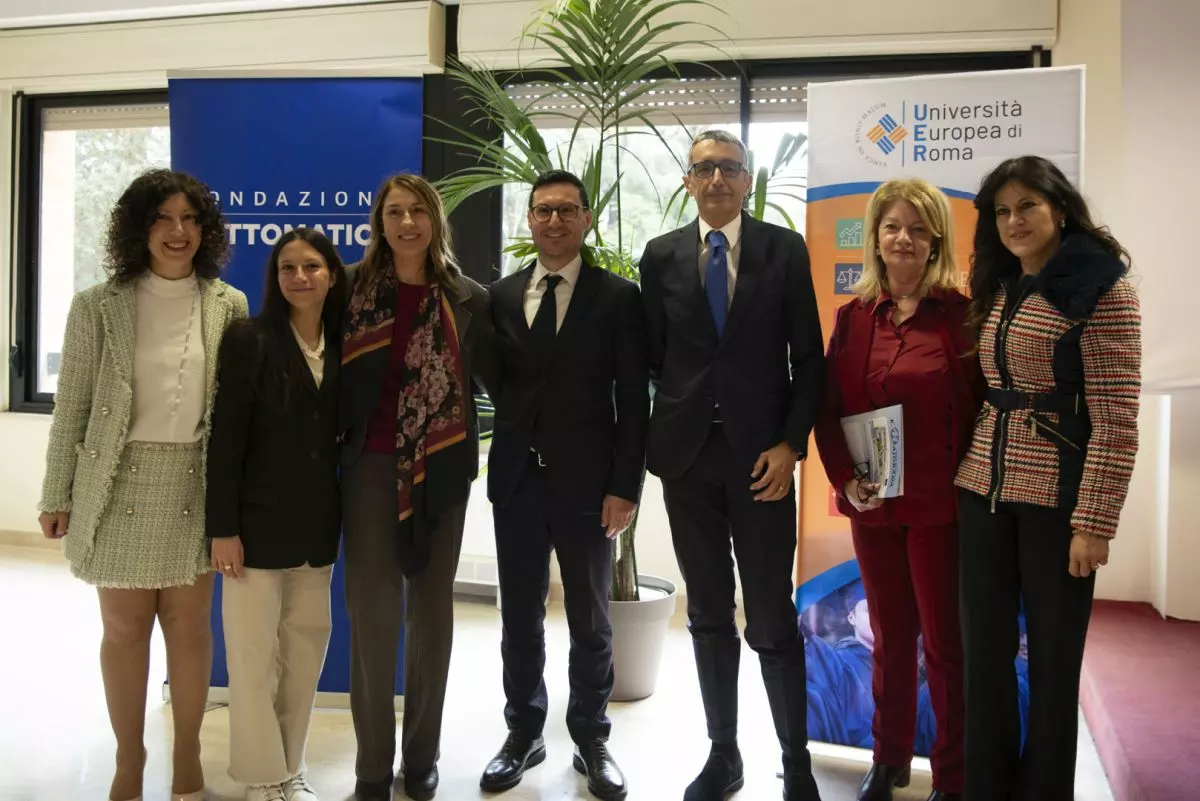ROME (ITALPRESS) – Social cohesion as a tool to counter discrimination among adolescents through innovative methodologies: this is the goal of research conducted by the European University of Rome, with the contribution of the Lottomatica Foundation, which has tested an educational model based on virtual reality and mindfulness to foster inclusion in schools.
The results of the study, which involved students from the Liceo “E. Majorana” high school in Latina, a city characterized by significant multiethnicity, were presented at the headquarters of the Capitoline University on Via degli Aldobrandeschi.
The initiative involved 120 students in the first two years of the language course, divided into an experimental group and a control group, engaged in psychosocial and educational activities aimed at stimulating social inclusion. The data collected showed a stronger association between prosocial values and “moral anger” in students participating in the intervention, an emotion that is activated in the face of social injustice, and which fostered more inclusive attitudes.
Eighty-three percent of the students reported becoming more aware of the impact of prejudice in interpersonal relationships and feeling more open and tolerant of cultural and individual differences. Indeed, the integrated approach, combining technological innovation and participatory activities, has proven to be particularly effective in improving social awareness and stimulating empathy.
Among the various innovative activities and methodologies deployed, the use of Virtual Reality (VR) within a specially reproduced natural environment allowed the students, through the use of visors, to take on the perspective of others, stimulating the design of initiatives against ethnic prejudice. Among the concrete initiatives to be proposed to educational institutions to foster inclusion, students suggested dissemination meetings on ethnic prejudice, creation of social awareness pages, production of short films, and culinary masterclasses for interaction between different food and wine traditions.
The Italian context has changed profoundly in recent decades from a country of emigration to a country of immigration. In 2024, more than 5 million foreign residents are registered in our country, an increase of 3.2 percent over the previous year. This phenomenon is particularly visible in regions such as Lazio, where foreigners account for 11.1 percent of the population, and in the province of Latina. In this scenario, it has become essential to develop targeted educational interventions to foster inclusion, combat discrimination and promote greater social cohesion. The project paves the way for new applications in other Italian schools, with the aim of transforming education into a true tool of active citizenship. A replicable model on a national scale, to build a more equitable and aware society.
“We are proud to have supported this innovative project that demonstrates how crucial it is to use modern methodologies, such as virtual reality, to raise awareness of social cohesion and inclusion issues among the younger generation. The adoption of innovative technologies allows us to get closer to the language of the youngest, making activities more engaging and effective in conveying important messages. – Riccardo Capecchi, President of Lottomatica Foundation, commented. Investing in educational initiatives that promote openness and appreciation of diversity and counter prejudice is one of our Foundation’s priorities. We firmly believe that education is a powerful tool for building a more just and inclusive society.”
“This research-intervention, supported by the Lottomatica Foundation, highlights how the integration of interdisciplinary methodologies, based on a psychosocial and educational approach and supported by the latest scientific evidence, can foster social cohesion and consequently counteract ethnic discrimination among adolescents,” says Professor Angelo Panno, Coordinator of the Master of Science in Psychology in EBU. This achievement takes on even greater significance since it was developed within an extremely significant context for adolescents’ growth, such as school. The use of innovative tools, such as Virtual Reality, mindfulness practice and participatory activities helped to strengthen in students dimensions of belonging such as global citizenship and openness to diversity. The support of the Lottomatica Foundation was essential not only to realize a relevant intervention for the school world, but also to support a young researcher at a crucial moment in her career. We could say that investing in research means promoting scientific progress and giving confidence to new generations of scholars, offering them the opportunity to develop and apply knowledge that can generate a concrete impact on society.”
-Photo Italpress-.
(ITALPRESS).

